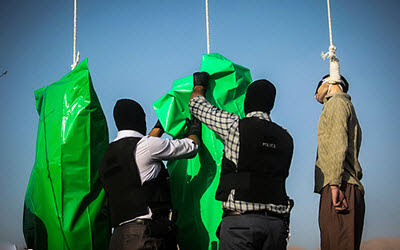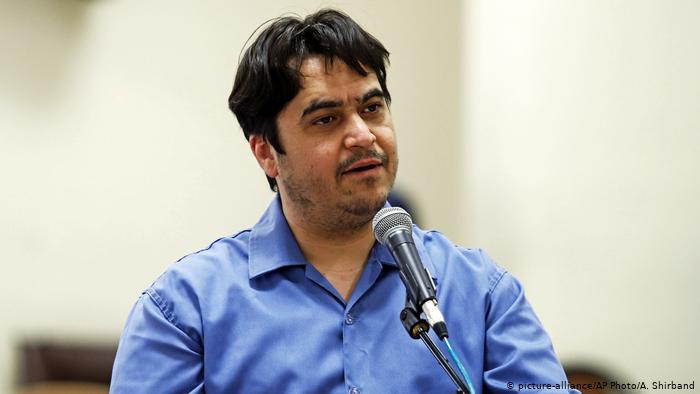The Statement of Six Republican Political
Organizations Concerning Mr. Reza Pahlavi’s Address
Our country is facing an incredibly difficult set of circumstances. The consequences of the Islamic Republic’s destructive policies and approaches in various social, political, economic, environmental, and cultural spheres have brought Iran an assortment of crises. The Islamic Republic is neither able to resolve these numerous crises and govern the country, nor transform itself. Inept government management, endemic corruption, runaway inflation, and economic sanctions have all made the lives of most Iranians unbearable.
Large groups of people have been overwhelmed by the situation and have taken to the streets to speak out against the government. Protest movements and street uprisings have transformed the country’s political scene and have paved the way for social and political developments. In the past few weeks, protests against inflation, followed by street demonstrations in Abadan and a number of other cities, and chanting slogans against the Supreme Leader, the clergy, and the Revolutionary Guards, have set the stage for a new political landscape.
This evolving situation has laid the groundwork for greater cooperation and synergy in the ranks of the Iranian opposition. Meanwhile, Mr. Reza Pahlavi has come to the scene on two occasions using two different personas. In his first persona, he considers himself the “voice of the people’s protest movement” and has attempted to confiscate popular protests for his own political advantage.
Using his second persona, this time as a leader, he has ordered the mobilization of the Iranian people in the style of a populist leader. On this occasion, four Farsi-language broadcasters abroad interrupted their regular programming and covered Mr. Reza Pahlavi’s speech live. In the following days, these media organizations covered the speech at length on their news programs and talk shows in a way that was unprecedented.
Contrary to Mr. Reza Pahlavi’s assertion that he does not wish to become a leader, in this speech he came across as an authoritarian and populist leader, addressing various groups in Iranian society, dismissing the opposition as useless, and seeking to “commandeer the protest movement.”
The live and simultaneous coverage of the speech by these media outlets and Mr. Pahlavi’s attempt to become the leader indicate that powerful circles abroad, using their media capabilities, wish to create their own alternative in the critical situation of the country, and present Mr. Pahlavi as their leader. They capitalize on the slogan, “Reza Shah, May You Rest in Peace”, chanted by some during the protests to give the mistaken impression that the people of Iran yearn for the monarchy to return and regard Mr. Pahlavi as their savior and someone who is going to liberate them from the Islamic Republic.
No slogans in favor of the monarchy and Reza Shah were heard in the protests of workers, teachers, and retirees and the protests of the people of Isfahan and Khuzestan. The people mostly expressed their demands and show their anger at the incompetence of government officials. In some protests, including student protests after rockets were fired at a passenger airliner, slogans were chanted against the rule of both the shah and the sheik.
Mr. Reza Pahlavi has been claiming to be an advocate for democracy for many years, but his ambiguous positions and the contradiction between his actions and speech, and especially the track record of his supporters and relatives, have cast doubt on his advocacy. In his last speech, he jettisoned the opposition and introduced himself as the only supporter of the people’s struggle.
His father suppressed his opposition to such an extent that in 1979 there was no viable political force capable of putting up a resistance against the power-hungry clerics. In the last two speeches, Mr. Reza Pahlavi has demonstrated his intention to return to the authoritarian form of government reminiscent of pre-1979 Iran. Democracy is not compatible with negating the role of the opposition. Democracy is characterized by a strong civil society and political parties.
It is the prerogative of Mr. Reza Pahlavi to declare himself as leader of Iran’s monarchists. But it is not his prerogative to claim the leadership of the people in the protest movement and their transition from the Islamic Republic by dismissing the opposition and taking advantage of favorable media coverage to follow in the footsteps of Ayatollah Khomeini in the 1979 Islamic Revolution. Iranian society is qualitatively different from 1979. The diversity of Iranian society cannot embrace such a project.
We, the six Republican political organizations, consider the Islamic Republic the main obstacle to the realization of freedom, democracy, and justice in Iran and the root cause of the current deplorable conditions, but at the same time, we express our opposition to any lifelong institution in the future political system of Iran. We believe the project to create “phony leadership”, totalitarianism that is based on the mobilization of the masses, disparaging democratic and republican groups and political activists inside and outside the country by the monarchists, and fostering a culture of monopolism, will not lead to democracy taking root in Iran. We believe that in an atmosphere of dialogue and interaction between different forces on the political spectrum, through collaboration and creation of coalitions among groups that have common ground, and finally an agreement on a set of democratic principles and requirements needed to transition from the Islamic Republic that democracy can be realized in Iran.
Political-Executive Boards
The United Republicans of Iran
Iranian National Front – Europe (Sixth Organization)
Iranian Leftist Party (Fadaayian Khalq)
The Republic Party of Social Democrats and Secularists
National Front Organizations Outside Iranian
Union for Secular Republic and Human Rights in Iran
(June 9, 2022)






